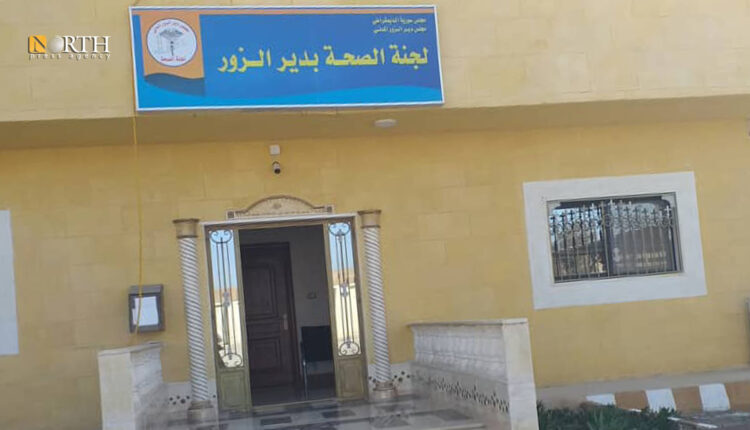
By Iman al-Nasser
DEIR EZ-ZOR, Syria (North Press) – Ahmad Al-Hussein experienced strange symptoms, such as fatigue, exhaustion, sweating, and loss of weight. However, little did he know that these might be the symptoms of a malignant disease.
Al-Hussein, 40, an IDP at the Meheimideh makeshift camp, some 12 km west of Deir ez-Zor, eastern Syria, visited al-Kasrah hospital in the northwest of Deir ez-Zor, where they prescribed him with medicines, but his condition did not improve. The doctors transferred him to hospitals in Hasakah Governorate, where he was shocked to find out he suffered from leukemia.
After the discovery of his disease, he began his treatment, which weighed heavily on him, as he suffered from high prices of medical tests, and costs of travel to another region to get the treatment in light of his dire living and economic conditions.
Cancer patients in Deir ez-Zor face many hardships amid the deteriorating health situation as hospitals lack medical equipment and staff, in addition to the absence of associations that support cancer patients.
He told North Press that he believed the reason behind his illness was his previous work in makeshift oil refineries, as cancer cases are common in Deir ez-Zor due to the spread of oil wells and the pollution they cause to the environment.
Khaled al-Mustafa, 35, from the village of Zughair in the northwest of Deir ez-Zor, also suffers from the same disease. The low income he makes and his inability to afford the costs of treatment have taken a toll on him. They include “costs of travel and medicine” as expenses of traveling between Deir ez-Zor, Raqqa and Hasakah is not less than 100,000 Syrian pounds (SYP, which equals about $6,5), not to the mention the expenses of accommodation, if needed.
He bought the most recent prescription of drugs for 250,000 SYP (which equals about $16,44) while his monthly salary does not exceed 600,000 SYP (which equals about $40).
Khadija al-Sheikh, co-chair of the Health Committee affiliated to the Autonomous Administration of North and East Syria (AANES), said, “1,4 million people from Deir ez-Zor suffer from soil and air pollution due to the use of weapons during years of war.”
“Not to mention the primitive methods of extracting and refining petroleum products that have spread widely without any control,” she added.
The AANES was first formed in 2014 in the Kurdish-majority regions of Afrin, Kobani and Jazira in northern Syria following the withdrawal of the government forces. Later, it was expanded to Manbij, Tabqa, Raqqa, Hasakah and Deir ez-Zor after the SDF defeated ISIS militarily there.
According to al-Sheikh, the number of leukemia, bone, stomach, liver and lung cancer cases reached about a 1000. Most of these cases are patients who are unable to afford the costs of treatment and chemotherapy doses.
The AANES official called on humanitarian organizations operating in Deir ez-Zor to support the affected population and provide free treatment in light of the exorbitant prices of medicine and chemotherapy doses, and high expenses of transportation.
